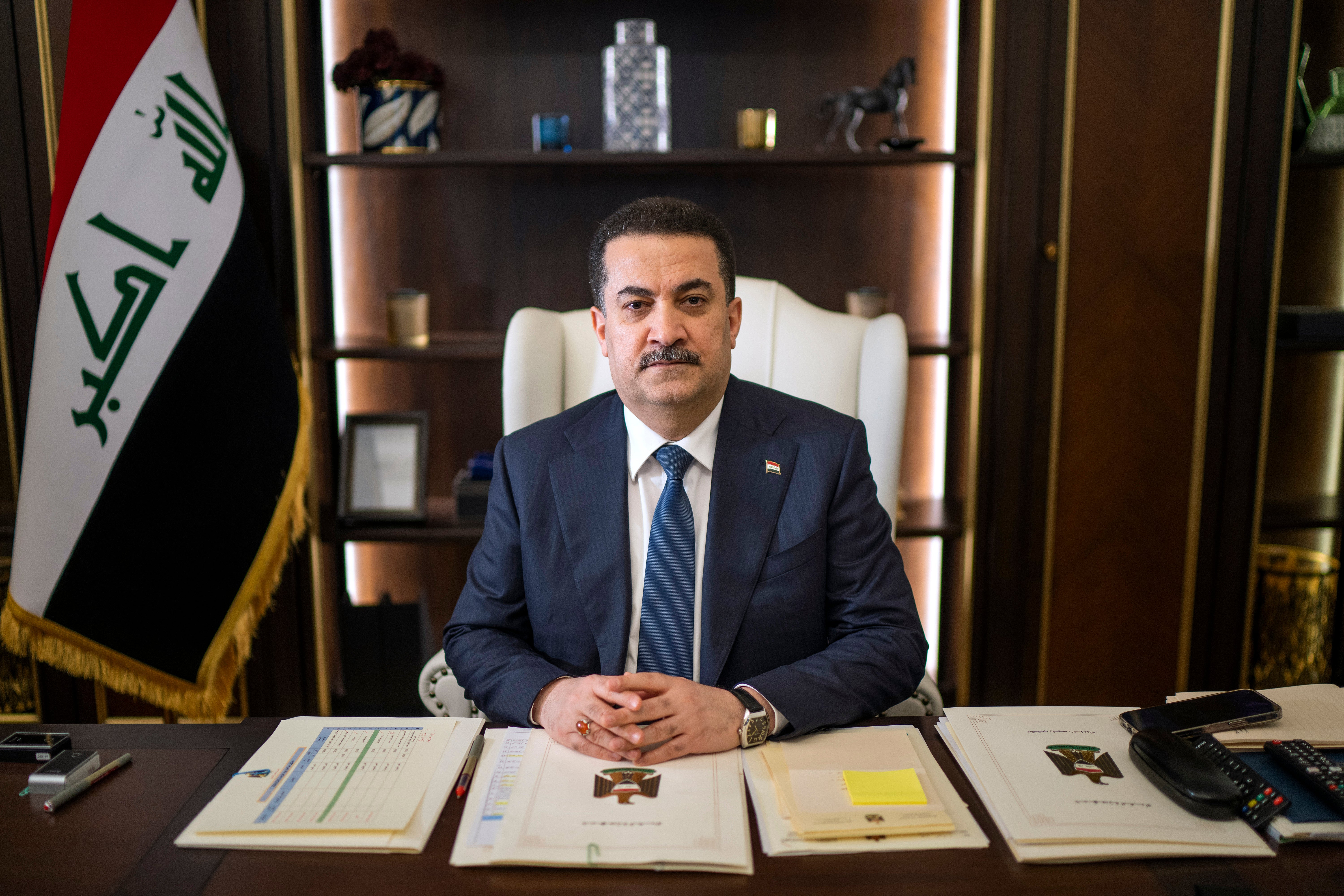Iraq announces plans for $17 billion transportation project linking Asia to Europe
Iraq’s prime minister announced plans for a $17 billion regional transportation project intended to facilitate the flow of goods from Asia to Europe

Iraq’s prime minister on Saturday announced plans for a $17 billion regional transportation project intended to facilitate the flow of goods from Asia to Europe.
The announcement was made at a one-day conference in Baghdad that convened transport ministers and representatives from Iraq, the Gulf countries, Turkey, Iran, Syria, and Jordan.
Iraqi Prime Minister Mohammed Shia al-Sudani said the planned Development Road project would facilitate the movement of goods from the Gulf to Europe by way of the Grand Faw Port in Basra, in southern Iraq, which would be connected to Turkey, then to Europe, through a network of railways and highways.
A centerpiece of the project will be the development of the Grand Faw Port and a “smart industrial city” adjacent to it, al-Sudani said.
The planned project, which would involve the construction of about 1,200 km (about 745 miles) of railways and highways, will be “an economic lifeline and a promising opportunity for the convergence of interests, history, and cultures,” said al-Sudani, adding it will “make our countries a source for modern industries and goods.”
He did not say how the project would be financed but noted that Iraq would “rely heavily on cooperation... with brotherly and friendly nations.”
The countries participating in Saturday's conference agreed to establish joint technical committees to move the project forward.
Iraq's relations with the Gulf countries have been strained in recent decades, as Iran-backed militias rose in prominence in Iraq in the wake of the U.S.-led invasion that toppled Saddam Hussein and opened a power vacuum in the country.
However, there have been signs of improving relations with the country's neighbors. In January, Iraq hosted the eight-nation Arabian Gulf Cup in Basra, the first international soccer tournament the country had hosted in more than four decades.
Bookmark popover
Removed from bookmarks